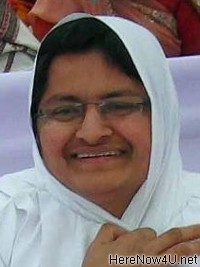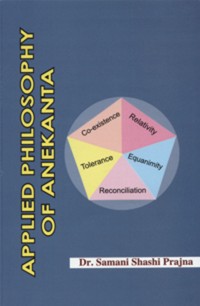Hemachandra in his work Anyayogavachedikā quotes,
kṛtapraṇaśākṛtakarmabhogaḥ bhavapramokṣa-smṛtibhaṅgadoṣān,
upekṣya sākṣāt kṣaṇabhaṅga-micchan-naho! mahāsāhasikaḥ paraste.[1]
If one accepts absolute momentary nature of sat, then it will lead to the fault of loss of deeds, the fault of enjoyment of deeds not done, the fault of ruin of becoming, the fault of ruin of liberation, the fault of ruin of memory. These faults obviously occur as established by experience.
The explicit order of the universe is fundamentally dependent upon the theory of change. If there would be no possibility or potency of change, then cause-effect relationship among the objects can never occur. All the schools of thought unanimously accept the essence of cause and effect in the universe. Most of the scientific researches and experiments are based on the cause-effect principle. The philosophies like vedantins who do not believe in the reality of modification or change have no answer to the question of how the universe originates out of absolute static reality. To answer this, they might have accepted the concept of māya. Accordingly it is māya, with the help of which, change takes place. In brief, to deny the concept of change is tantamount to the denial of the existence of the entire world of being.[2]
The denial of change will lead us to the unending questions and problems regarding the concept of karma theory, concept of puruṣārthavāda, the concept of inflow of karma (āśrava) and inhibition of karma (Saṁvara) and shedding of karma (nirjarā) etc., which will never occur. If everything in the world of affairs would be static bereft of any sort of change, then, every object, which is present, will remain as it is. If we deny change, then cloths, things will remain new forever, which is contradictory to our human experience.
If a person accepts soul as permanent by its nature and doesn’t accept any change in their nature, then there will be no fluctuations in the human emotions, no feeling of joy or sorrow, no transmigration of soul, from one realm to another realm. Neither rebirth nor pre-birth can take place. Human efforts will not work at all, the entire human race will never try to attain emancipation. Not only this but also the entire world’s religious beliefs and practices and God worship will prove to be of futile effort.
 Dr. Samani Shashi Pragya
Dr. Samani Shashi Pragya

